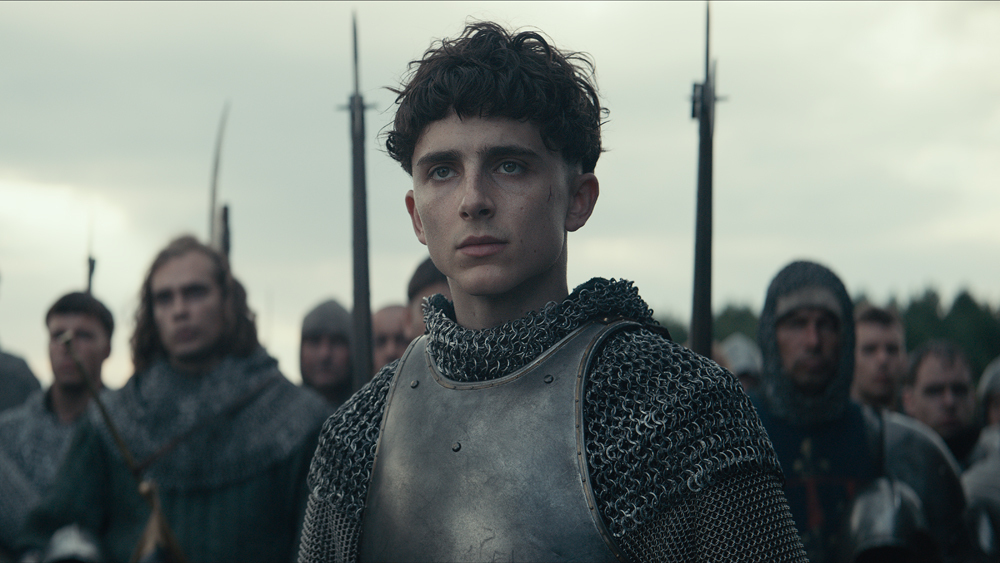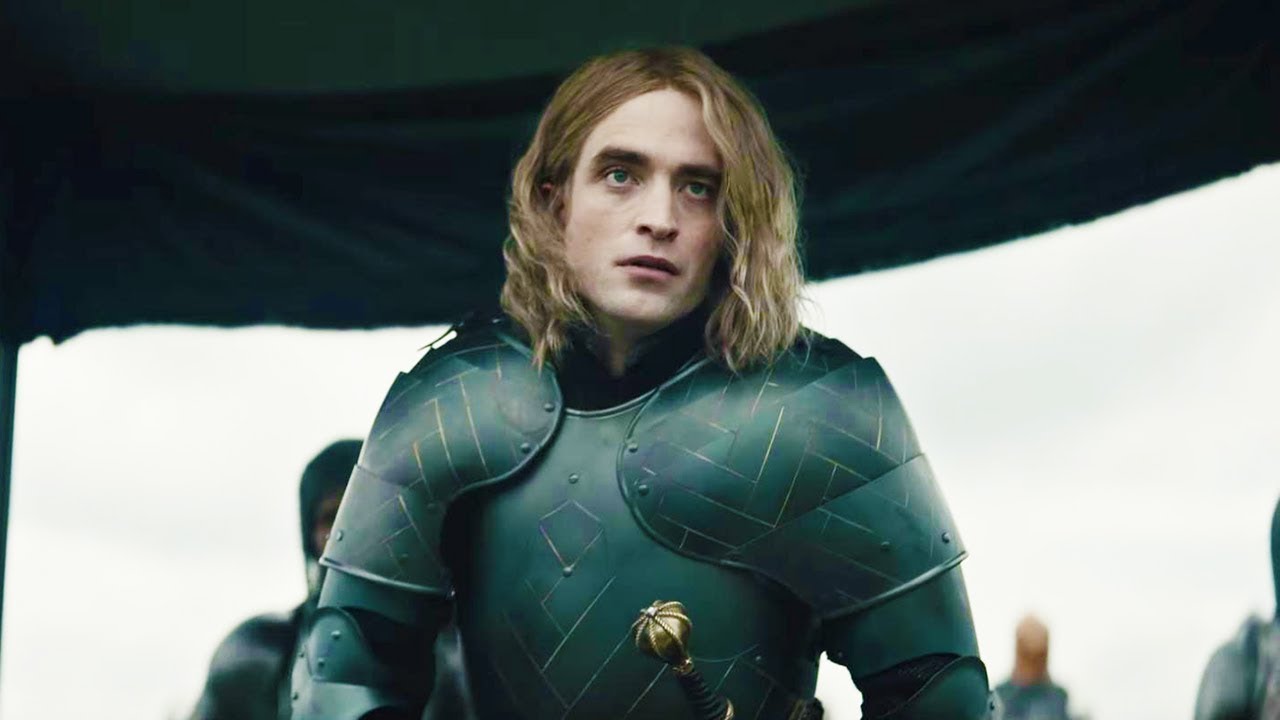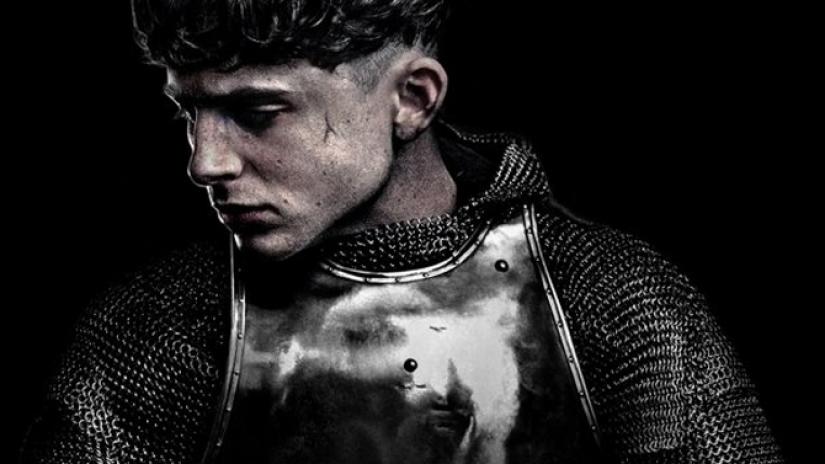The sweeping narrative epic that is Shakespeare’s ‘Henry V’, documenting a partly fictionalised account of the life of King Henry the Fifth of England, in particular focusing on the events of the English conquest against the French in Agincourt, the battle that followed, the events that preceded it and the aftermath of the bloody war, suitably begins with a prologue. The prologue was a singular narrative voice apologising to the audience for the limitations of the theatre of the Elizabethan times that lacked any semblance of a scenery, and compared to today’s technological evolution, was rather trivial, urging the audience to “piece out [their] imperfections with [our] thoughts, turning the accomplishment of many years, into an hour-glass.”
A suitably relevant rendition then comes in the form of Netflix’s latest, an adaptation of the same, and might I say, that the craft and visual grandness it has on display more than overcomes the limitations of the theatrical medium. ‘The King’ too is a sweeping historic piece with its gaze set over the coming of age of King Henry the Fifth of England.
While we will be further detailing in a separate set of articles the narrative backing of the film and its immortal source material, as a beginning point for getting to the ending of this film, I will state that the film primarily focuses on the death of King Henry the Fourth of England, how his wayward son, who according to the then monarch whiled away his time with the common folk of the kingdom, drinking, making merry and whoring, completely averted to the throne, the circumstances under which he finally assumes the mantle of the king, his victory over the French in the battle at Agincourt leading to the completion of his father’s long forged dream even if he vowed to be a different ruler from him, and the conditions that led to the marriage of alliance that would unite the English and the French kingdoms. Now with that established, we will move towards explaining the ending of the film.
The Ending, Explained

The narrative of the film is rather dense, befittingly so since it adapts even if in part three, of Shakespeare’s plays from his ‘Henriad’ tetralogy of works, namely both the parts of ‘Henry IV’, and the singular ‘Henry V’, choosing to tell its story focussing on the tumultuous rise to power of King Henry V and how he proves himself a worthy suitor to the throne. Roughly 40 minutes of its 140 minute long runtime is dedicated to the final battle in the grounds of Agincourt, that, safely stating wouldn’t be a spoiler, was won in landslide fashion by the English forces.
It is, however, the military strategy behind that is interesting to watch unfold, suggested by Sir John Falstaff, who contrary to his literary adaptation is a man of few words here, and in the end, proves to be a loyal warrior for the English side. In our pursuit to get to the ending, we will have to rewind our clocks to the moment when King Henry’s advances to the French garrison and his request for a man-on-man combat with the Dauphin of France is denied by the latter.
As strategized the night before following the rain, the English army proceeds with a small front of armed, armoured and mounted men to draw the French first line of defence into the muddy battlefield, in a move that is surely bound to be a suicide mission for them. It is a rousing moment in the original play and the film when he nigh selflessly lays his life in battle, more so in the play given his character arc as a jester in the beginning, later escalating to loyal advisor and commander, which leads to his redemption being suited. In the film too, Sir john Falstaff is repeatedly claimed by King henry V to be his most loyal subject and among the few he claimed to be his friends, making his end in battlefield all the more honourable.
The English forces then descend upon the French, beginning with a rain of arrows, and the cavalry proceeding on foot and with no armour, giving them the advantage of mobility over the heavily armoured Frenchmen in battle, only aggravated by the dampened and muddied ground after the rains, as exactly visualised by Falstaff.
The French suffer serious casualties and are defeated in large numbers, leading to the Dauphin descending to the battlefield himself to challenge Hal to a one-on-one sword battle, despite refusing it at first, seeing his military fall and the one-on-one as his best chance to turn the tables in his favour. He too, is almost anti climactically defeated, as he slips and struggles to walk straight in the heavy armour akin to his men, and is ordered by Hal to be executed, while he himself walks away, victorious. His soldiers then repeatedly stab the Dauphin to death, and the battle is won.

King Henry then proceeds to the castle to meet with King Charles Vi of France to discuss the terms of his surrender, who remarks the battle a result of the vainglory and the strained relationship he shared with his son, and Hal shared with his father, terming Hal a man of reason, agreeing to surrender his kingdom and palace, proposing marriage between him and his daughter, Princess Catharine. He agrees and the two follow it up with a charming conversation despite not being too well versed in each other’s languages. The princess makes questions him on his real reason to go to war, and makes him realise that all of it was an elaborate plot to force him to go to war in an attempt to fulfil his father’s vain ambition and forge an uneasy alliance between the two kingdoms, one that she predicts won’t last long.
With the people outside cheering and waiting for him, he comes to the realisation that it was indeed William Chief Justice who framed him, placing crucial triggers along the way that lead to him declaring war on France. Primary among them was the assassin that was supposedly sent by the French to murder Hal, taken as a straight act of war by the former, who too was set up by the chief justice to lead Hal to believe the same.
Upon finally being confronted with the truth, William Chief Justice erupts stating that in doing so, he gave his king what he wanted all along: to become a king respected by his followers and country, and the peace he had always wished for between France and England, stating that the peace he wanted so dearly was only forged in victory.
In what I see as his final step in his journey to become a man from a boy as the story of ‘The King’ embodies, in line with him ordering the execution of French prisoners after his victory, he stabs William in the skull seeing it as an act of treachery. In a way, his faint sense of morality faded completely upon the death of Falstaff, who always believed him to not be the man his father was, and this scene embodies that, along with his newfound sense of confidence with it. The film ends with him marrying Princess Catherine, making her promise him that she would only speak true and clear to him, always, as the two proceed to lead a union of the two nations.
Read More: Is The King Based on a True Story?


You must be logged in to post a comment.